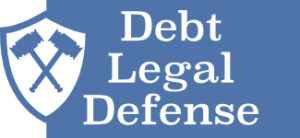If you are considering filing for bankruptcy, you may feel overwhelmed and uncertain about what it entails. The reality is that bankruptcy can be a complicated process, and it is important to understand the implications before making a decision. Here’s what you need to know about filing for bankruptcy and what it means.
The Basics of Bankruptcy
Filing for bankruptcy can be a difficult decision to make, but it may be the right choice for you if you are having trouble managing your debt. Bankruptcy is a legal process that provides people who are unable to pay their debts with a way to get a fresh start financially. When you file for bankruptcy, an automatic stay is issued, meaning all creditors must stop collection efforts and any foreclosure proceedings. This allows you to restructure your debts and work out a repayment plan that is acceptable to both parties.
The main purpose of bankruptcy is to provide individuals with a second chance financially. It allows them to discharge some or all of their debts, depending on the type of bankruptcy they file. In addition, it stops creditors from harassing them, prevents them from being sued by their creditors, and protects their assets from seizure.
The Pros and Cons of Bankruptcy
Filing for bankruptcy is often seen as a last resort when all other debt relief efforts have failed. However, it can also provide an effective solution to your financial problems if you face severe debt and don’t have the means to pay it off. Before deciding whether or not to file for bankruptcy, it is important to weigh the pros and cons of bankruptcy.
- Debt Relief: Bankruptcy can eliminate many or all of your unsecured debts, allowing you to start fresh and rebuild your finances.
- Automatic Stay: An automatic stay will stop creditors from taking any legal action against you while your bankruptcy case is pending. This includes garnishment, repossession, foreclosure, collection calls, and lawsuits.
- Affordable Payments: You may be able to make manageable payments on your debts through a payment plan called Chapter 13 bankruptcy.
- Credit Score: Filing for bankruptcy will have a negative impact on your credit score for up to 10 years. Sometimes, however, people’s bankruptcy scores benefit from the elimination of debt.
- Tax Returns: Some of your tax refunds may be taken if you file for Chapter 7 bankruptcy.
- Asset Loss: Depending on the type of bankruptcy you file, some of your assets may be liquidated to repay creditors.
How a Bankruptcy Attorney Can Help
A bankruptcy attorney can provide invaluable assistance when filing for bankruptcy. They can advise on the best type of bankruptcy for a given situation, help determine whether any assets should be protected from creditors, and work with creditors to negotiate a repayment plan. They can help navigate the legal process, ensure that paperwork is properly completed, and explain the rules and regulations of filing for bankruptcy. With the right guidance, filing for bankruptcy can be an opportunity to start over and get your finances back on track. Contact Debt Legal Defense today for more information.






